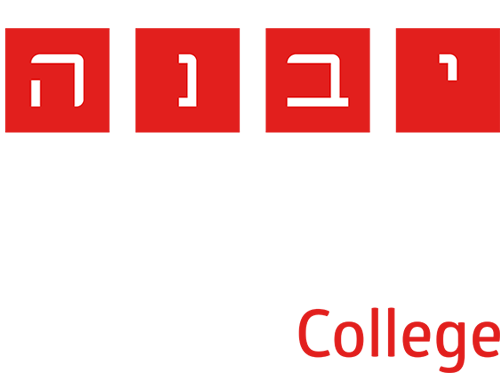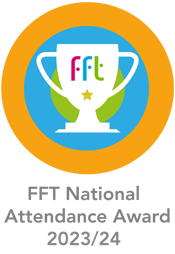Our curriculum across both KS3 and KS4 is driven by our vision:
‘To create real readers, real writers and real critics, who understand the power, appreciate the power and can use the power, of the written and spoken word.’
Through our decisions about curriculum structure and content, we aim to take students on a journey which will ignite and foster a passion for speaking, listening, reading and writing. We want our students to truly appreciate the magnificent power language possesses. We want them to see how it can be used to make a reader or listener FEEL, how it can cause them to think and ask big questions. We want them to feel a sense of awe and wonder at how skilled those writers and orators are, who are able to command this power so that ultimately, they can BE those writers and orators and use those skills – both in examinations and beyond.
Y7 Intent
Over the course of Year 7, our students will study and learn the following:-
| Topic/Study Focus | Knowledge/Skill focus |
| Rapid Reading 1 – Ghost Boys | https://yavnehcollege.org/wp-content/uploads/2023/05/Year-7-Unit-1-Ghost-Boys-KO.pdf |
| Rapid Reading 2 – A Monster Calls | https://yavnehcollege.org/wp-content/uploads/2023/05/Year-7-Unit-1-Monster-KO.pdf |
| Origins of Storytelling | https://yavnehcollege.org/wp-content/uploads/2023/05/Knowledge-Organiser-Fairy-tales.pdf |
| Powerful messages/Powerful poems | https://yavnehcollege.org/wp-content/uploads/2023/05/Year-7-Unit-3-Poetry-KO.pdf |
| Shakespeare – Romeo and Juliet | https://yavnehcollege.org/wp-content/uploads/2023/05/Year-7-Unit-4-Shakespeare-RJ-KO.pdf |
| Non Fiction – News and the truth | https://yavnehcollege.org/wp-content/uploads/2023/05/Year-7-Unit-5-News-KO.pdf |
Y7 Implementation
Our students secure this knowledge through the careful planning of our lessons and schemes of learning, all built and predicated on the expectations of the National Curriculum model. This is then also developed out further, to ensure a depth and breadth to the content that is covered. Giving our students access to quality, diverse texts and voices underpins our choices.
Planning for lessons and schemes of learning is rooted in an understanding of Cognitive Science, with each and every lesson in English is planned so that there are opportunities for:
Retrieval of prior learning via our entry routines and ‘Do Now Task’ Booklets
Opportunities for paired classroom discussion using ‘Think/Pair/Share’ and a classroom climate where all pupils do contribute and share their ideas
Whole class mini white board use to check understanding
Modelling and examples of ‘What a Good One Looks Like’, used as scaffolds to help all achieve excellence
Y7 Impact
In year 7, ongoing assessment of learning in English is undertaken each lesson. It is also undertaken at the end of each of our units, via an extended piece of writing. This allows pupils to deliberately practice applying their learning and knowledge. Following assessment, we make sure pupils look closely at their individual feedback and the shared examples of excellence, so that pupils can then return to – and further improve – their responses. Students will be offered regular formative feedback during lessons, verbally and written on our whole class feedback sheets as well as encouraged to peer and self mark in green pen.
Y8 Intent
Over the course of Year 8, our students will study and learn the following:-
| Topic/Study Focus | Knowledge/Skill focus |
| Rapid Reading 1 – Boy 87 | https://yavnehcollege.org/wp-content/uploads/2023/05/Year-8-Unit-1-Boy-87-KO.pdf |
| Rapid Reading 2 – Long Way Down | https://yavnehcollege.org/wp-content/uploads/2023/05/Year-8-Unit-1-Boy-87-KO.pdf |
| Poetic techniques | https://yavnehcollege.org/wp-content/uploads/2023/05/Year-8-Unit-2-poetry-KO.pdf |
| Victorian Childhood | https://yavnehcollege.org/wp-content/uploads/2023/05/Year-8-Unit-3-Victorian-Children-KO.pdf |
| Shakespeare – Much Ado | https://yavnehcollege.org/wp-content/uploads/2023/05/Year-8-Unit-4-Shakespeare-Much-Ado-KO.pdf |
| Non Fiction – Gender | https://yavnehcollege.org/wp-content/uploads/2023/05/Year-8-Non-fiction-KO.pdf |
Y8 Implementation
Our students secure this knowledge through the careful planning of our lessons and schemes of learning, all built and predicated on the expectations of the National Curriculum model. This is then also developed out further, to ensure a depth and breadth to the content that is covered. In year 8, we build on the year 7 knowledge of understanding and interpretation by focusing on developing knowledge of techniques and analytical skill.
Planning for lessons and schemes of learning is rooted in an understanding of Cognitive Science, with each and every lesson in English is planned so that there are opportunities for:
Retrieval of prior learning via our entry routines and ‘Do Now Task’ Booklets
Opportunities for paired classroom discussion using ‘Think/Pair/Share’ and a classroom climate where all pupils do contribute and share their ideas
Whole class mini white board use to check understanding
Modelling and examples of ‘What a Good One Looks Like’, used as scaffolds to help all achieve excellence.
Y8 Impact
In year 8, ongoing assessment of learning in English is undertaken each lesson. It is also undertaken at the end of each of our units, via an extended piece of writing. This allows pupils to deliberately practice applying their learning and knowledge. Following assessment, we make sure pupils look closely at their individual feedback and the shared examples of excellence, so that pupils can then return to – and further improve – their responses. Students will be offered regular formative feedback during lessons, verbally and written on our whole class feedback sheets as well as encouraged to peer and self mark in green pen.




